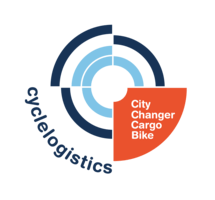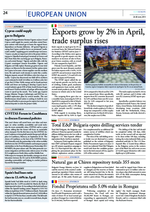
Brussels (Belgium)
Brussels (French: Bruxelles; Dutch: Brussel) is a city of 145,000 inhabitants. It is the capital of Belgium, the administrative centre of the European Union, and a centre of international politics. The city faces serious mobility challenges, mostly in business days.
Brussels had a modal split of approximately 32 percent for public transport and 68 percent for private cars, according to a 2003 report by the Laboratory of Transport Economics of Lyon.
Although known as one of Europe’s most motorized cities, with more than one car for every two people, Brussels has an extensive public transport service. The Brussels Metro dates back to 1976, and in 2011 consisted of four metro line services with some shared sections. The metro had 49.9 km of track and 59 stations.
Before Brussels got its first proper metro line, it had the underground premetro, which has been served by trams since 1968. Still running, the premetro network consists of two underground sections served by otherwise open-air tramlines and designed to be convertible to conventional metro lines. Additionally, Brussels has a few short underground tramway sections. In all, there are 51.9 km of metro and underground tram lines and 69 metro and premetro stations as of 2008. Bus and surface tramways cover the entire city.
Since 2003 Brussels has had a car-sharing service operated by the Bremen company Cambio in partnership with the STIB and local ridesharing company Taxi Stop. As of 2010, the system had 6,000 clients sharing 200 cars at more than 60 stations distributed across the region.
Another car-based service is the collective taxi scheme Collecto, launched in 2009. The system runs at night as a complement to the night bus service. With fixed starting points, many of them at public transport stops, the Collecto taxis takes customers anywhere within the Brussels region for a flat fare of EUR 5.
In 2006 a small public bicycle system, Cyclocity, was introduced focusing on the central, Old city of Brussels but was discontinued due to lack of interest. In 2009, a new system dubbed Villo was launched on a grander scale with the hope that more comprehensive coverage would make the difference. By February 2011, the system counted 2,500 bicycles and 162 stations spread over 11 of Brussels’ 19 communes.
Since 2006, Brussels Mobility, a department of Brussels Region, has supported schools in the design of school mobility plans. As of 2010, 140 schools comprising one third of the region’s students were enrolled in the programme. Some of the schools have succeeded in reducing their level of motorized transport by 30 percent.
Brussels Mobility also supports company travel plans for area businesses.
The city’s ambitions for sustainable mobility are laid out in the Iris 2 Plan, a strategy adopted in the fall of 2010 to tackle congestion from 2015 to 2018. Its overall objective is to reduce automobile traffic by 20%.
The methods suggested include reducing the number of parking places, lowering speed limits on certain main roads, taxation on the use of the car and the establishment of low-emission zones. Other suggestions are to encourage alternative mobility, such as the automation and extension of the metro network, increasing the number of priority lanes for public transport and creating more pedestrian zones.
Apart from the Iris 2 Plan, there are separate plans in the works or already adopted for utility cycling, walking, road safety, public works and transport developments, taxis and the communal plans of the local governments within the Brussels Region.
Concerning partnerships, the Brussels Region has worked the Association of Cities and Municipalities of the Brussels-Capital (BAS) and the Belgian Institute for Road Safety (IBSR) on its road safety plan. It works with area schools in travel planning and it liaises on an ongoing basis with professional networks of taxi drivers, freight haulers and limousine services. It also partners with several businesses in the development of site-based travel plans.















